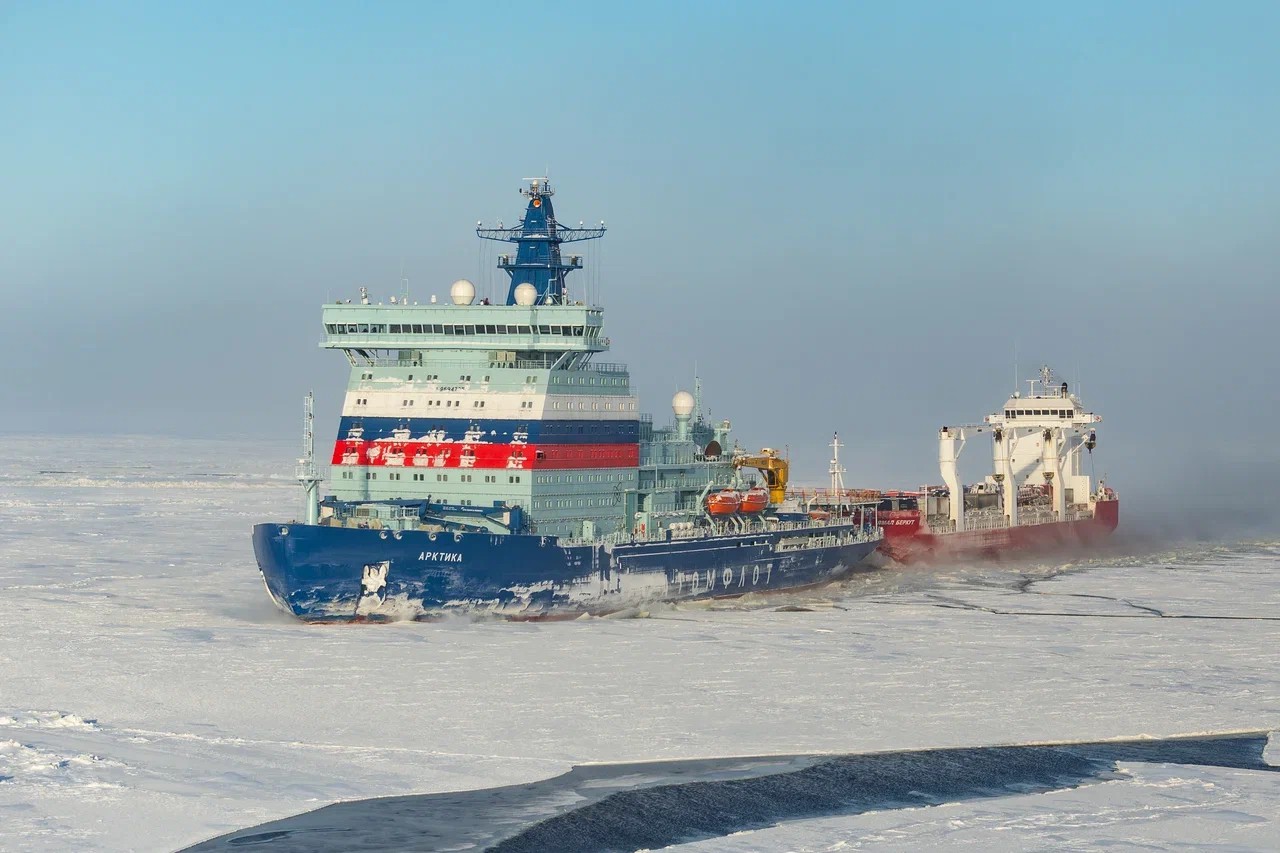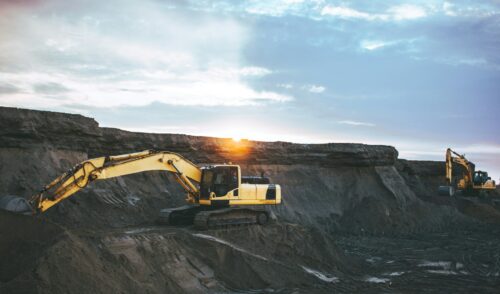
NSR: International Context
back to contentsRosatom played a key role as a co-organizer and active contributor to the International Arctic Forum held in Murmansk in late March. Russia aims to significantly increase cargo shipments via the Northern Sea Route (NSR), leveraging all available resources. As the NSR infrastructure operator and owner of the world’s only nuclear icebreaker fleet, Rosatom is central to these efforts.
This year marks the 500th anniversary of Russia’s exploration of the NSR, dating back to the first documented proposal of a maritime passage to China via northern Russian seas. Rosatom is working to make year-round navigation on the NSR a reality.

The Russian nuclear corporation is developing sea lanes that link Russia’s northwestern ports with the Far East. Previously called the Greater Northern Sea Route, these lanes were branded at the forum as a Transarctic Corridor. Financial, economic, and operational models for the Transarctic Transport Corridor are set to be approved by August 1.
More icebreakers needed
Despite global climate trends, scientists predict that ice conditions in the Arctic Ocean will require icebreaker escorts for most of the year until at least 2050. To achieve year-round NSR navigation in these conditions, Russia relies on its fleet of nuclear-powered icebreakers, the most powerful in the world. They ensure cargo deliveries for Arctic communities, industrial projects in the region, and partners from all over the world. Freight traffic will continue to grow, according to Rosatom’s estimates, so more icebreakers will be needed.
37.9 Mt
NSR freight traffic in 2024
“Last year’s record was just under 38 million tonnes, but our partners developing Arctic deposits say we should be preparing for hundreds of millions of tonnes. Currently, we need 11 icebreakers to meet today’s needs, and we have them, including eight nuclear-powered ones. Now we have to step up to a new level, planning 100–150 million tonnes and 15‑17 rather than 10-11 icebreakers. That means we must build more,” Rosatom Director General Alexey Likhachev said at the forum.

2024 also saw a record-breaking number of 92 transit voyages made along the NSR, with over 3 million tonnes of cargo transported, a nearly 50% increase from 2023.
3 Mt
NSR transit traffic in 2024
Trade caravans
Rosatom is expanding cooperation with international partners. As Vladimir Panov, Rosatom’s special representative for the Arctic, said at the forum, Russia’s collaboration with China and India on the NSR has become systemic. “Last year fundamentally transformed international cooperation on the Northern Sea Route. High-level intergovernmental partnerships were established with China and India on instructions from the Russian president and with support from the Foreign Ministry. This is now a structured effort, and it will continue in 2024,” Panov said.
A representative from a Chinese logistics firm reported that their company had made eight NSR voyages in 2023 and 13 in 2024, moving over 20,000 TEU.
A new Arctic Express No. 1 service was launched in 2024, offering multimodal transportation between Chinese ports and Moscow logistics hubs via Arkhangelsk. In 2025, Arkhangelsk expects 20 voyages and 10 ship calls under this service, with route expansions to Murmansk and Pevek planned for the year.
Container shipments will be further boosted by the construction of Arc7-class container ships, extended navigation seasons, and deeper port drafts, according to the Chinese logistics firm representative.
Russia is responding to these demands. For example, the Murmansk regional government is evaluating the conversion of part of its deep-water fishing port for container handling.
“Our partners from Belarus, China, the UAE, and other countries have shown strong interest in developing Arctic transport infrastructure.”
Vladimir Putin
President of Russia
Significant focus is being placed on growing Russia’s Arctic shipping capacity. “We must act on all fronts, acquiring and commissioning new vessels, fostering partnerships with global manufacturers, and realigning Russia’s shipbuilding industry to meet strategic demands,” Russian President Vladimir Putin said at the forum. He also invited international operators to invest in Russian shipping firms, not just financially but also through technology and fleet contributions. “Our partners from Belarus, China, the UAE, and other countries have shown strong interest in developing Arctic transport infrastructure,” Putin added. “This presents major business opportunities.”
Photo by: Roscongress, Atomflot




